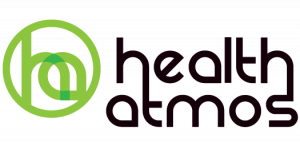What is Health Screening for Children Important?
Children are energetic and perhaps this is why parents fail to see the need for early health check-ups for them. Health screening for children are not merely because your child might have fallen sick, but they are preventive methods to ensure the healthy development of your child.
Importance of regular Health check-ups is to assess the normal development of the child, to keep a track of the immunization schedule and to assess any abnormalities (if any). The physician can also insist on a test for vision and hearing health. This test starts 3 years before the child starts schooling.
Some warning signs of vision issues in children
- Squint eyes
- A frequent headache
- Problems of copying from a blackboard in schools.
- Blurred vision
- Inward or outward turning of eyes.
Family Health Screening
Couple Health Screening
Children Health Screening
Senior Citizen Health Screening
Health Atmos provides quick & quality Executive Health Checkup, Annual Health Screening Package and Preventive Health Checkup that are affordable & cost-effective.
Some warning signs related to hearing issues in children.
- Lack of or inadequate response to calls and noise.
- The development of speech is not as usual.
- Speech that sounds abnormal or close to sounds.
Why is Early Health Screening for Children Necessary?
A few problems can be detected at a very early age. They include –
- Eye problems like myopia, hyperopia, astigmatism
- Sinus issues
- Hearing loss
- Lead poisoning
- Learning disorders
- Psycho and social issues
- Speech disorders
Leukaemia, heart diseases and other life-threatening problems can be identified at an early age. Preventive measures can be taken to control the disease. Upcoming health issues can be determined and be treated in the right manner. The tests include screening for dental health, sleep deprivation, skin infections, infections in the digestive tract, and a lot more.
The Benefits of Child Visits:
- Prevention. Your child gets scheduled immunizations to prevent illness.
- Tracking growth and development. You will be able to see how much your child has grown since your last visit.
What Should I Expect During a Child Visit?
- Your child gets their scheduled immunizations and vaccinations at the right stages to help prevent illness. Nutrition is a key element of preventive care, along with hearing and vision checks.
- The physical and mental growth and development of your child will be tracked.
- Your physician will discuss with you important subjects such as illness prevention, diet, physical activity, social skills, and sudden health changes in your child.
The health screening for children may include the following:
- Head to toe physical examination
- Developmental Screening
- Vision screening
- Hearing screening
- Blood pressure screening
- Anaemia screening
- Urinalysis
- Lead screening, as needed
- Immunizations
- Health education
Age-wise Health Screening for Infants:
Parenting is not only rewarding but can be challenging as well. As parents, it is essential to keep monitoring your baby’s age-wise check-ups, especially for the first year as it is a critical spell in the normal growth and development of a baby. Your doctor may also want to keep a close check on the baby’s progress during this phase.
The pediatrician will recommend Health screening for infants immediately after birth at regular intervals. In these systematically scheduled check-ups babies are commonly checked for growth and health progress.
Why is Health Screening for Infants Important?
Infant check-ups are important for the following reasons:
- Track Baby’s Progress of height, weight and development of the baby’s normal growth.
- Family Medical History / genetic defect
- Parents Can Ask Questions
- Track baby’s age-wise routine vaccinations
After Birth:
Your pediatrician may carry out a complete physical examination of your baby shortly after his birth checking for vital signs, basic newborn reflexes, alertness, skin tone, hip stability to ensure that baby is healthy and responding fine. Other things that your doctor may scrutinise can include:
Hearing Screening
Your doctor may check the hearing ability of your baby to confirm that his hearing is A-OK by conducting two different tests namely OAE (Otoacoustic emission) and ABR (Auditory Brainstem Response). The OAE test entails putting a microphone and a mini earphone in the baby’s ear to assess sound reflection in his ear canal. The ABR test involves placing electrodes on the baby’s head to evaluate the response of the hearing nerve to sound. Both the tests can identify hearing loss.
Neonatal screening tests will check for serious health problems.
Metabolic Screening
Metabolic screening of a baby involves drawing a blood sample from the baby’s heels and testing his blood for sickle-cell disease, inherited disorders like hypothyroidism.
Immunization
Hepatitis B immunisation is administered shortly after birth.
Health Screening at 1–4 weeks
At this health check, the physician will monitor both the baby and the parents. The physician will want to know details like how your baby has been developing, feeding and how you are managing the newborn. They may ask questions about vision and hearing to determine if there are any problems; and for infants with low birth weight, an anaemia test is done during the first year of the child. This is to check if the haemoglobin levels are right.
An immunisation plan may also be discussed at this stage.
Health Screening at 6–8 weeks
The 6–8 week check will include physical, emotional and social assessments of both mother and baby.
At each check-up, you should bring along your infant’s Health Record and the discharge summary, where weight; height and head circumference measurements can be noted and compared to average growth rates. These visits are independent of illness. This means that even if your child is healthy, they should attend all the visits. Child visits usually start a few days after birth and continue until the age of 18. Children have more frequent child visits when they are younger, especially as newborns. The physician also can insist on a test for vision and hearing health. This test starts 3 years before the child starts schooling.
Your immunization plan may also be reviewed at this stage.
Health Screening at 6–8 months
The growth and physical development of your child will be assessed at this check-up. You can discuss moving to solid foods for your infant, the social development of your child, crawling, sleeping, and helping your child to speak.
Health Screening at 18 months
The growth and physical development of your child will be assessed at this check-up. The physician will assess how your child is learning and behaving, moving, walking, talking, and understanding what others say.
Health Screening at 2½–3½ years
This check-up includes assessment of growth, hearing, vision and speech. Height and weight will be measured at this age. Children’s walking will also be checked.
The physician may check the abilities of children by asking them to name objects or body parts and to participate in activities like drawing shapes or assembling blocks.
Health Screening at 4–5 years
This health check is suggested just before the child begins kindergarten or preschool. The growth, hearing, vision and speech will be assessed and weight and height will be measured. Preschool immunizations should be completed. At this age, the physician will check that a child can hold a pencil in a tripod grip.
- Annual physical examination by your physician includes eye examination, blood pressure, heart rate, height, weight to make sure that your child is developing at a healthy pace.
- Your child’s hearing ability will be monitored.
- We will check your child‘s immunizations record and will give him or her any shots that are required before your child starts school.
Health Screening at 6-12 years
- Annual physical examination by your physician includes eye examination, blood pressure, heart rate, height, weight and Body Mass Index (BMI).
- Your child may be asked to stand up and bend over so that your physician can look closely at spinal development and check for scoliosis.
- We will check your child‘s immunizations record and will give him or her any shots that are required (list).
- Your physician may test for tuberculosis and will discuss any new health and safety concerns with you and your child.
Health Screening at 13-19 years
As your child becomes a teenager hormone will play a big role in his or her development. Hormonal changes will result in moodiness, insecurity and a period of uncertainty for your teenager.
- Annual physical examination by your physician includes eye examination, blood pressure, heart rate, height, weight and Body Mass Index (BMI).
- Screenings for tuberculosis, cholesterol levels, anaemia, obesity and diabetes may also be assessed.
Health Screening at 20 years
- Annual physical examination by your physician includes eye examination, blood pressure, heart rate, height, weight and Body Mass Index (BMI).
- Screenings for tuberculosis, cholesterol levels, anaemia, obesity and diabetes may also be assessed.
- Depending on your individual circumstances, your physician may want to do an electrocardiogram to check for heart disease, and blood tests to screen for thyroid disease and liver problems
- Depending on risk factors, your physician may also recommend screening for skin cancer, sexually transmitted diseases and HIV infection.
Follow our blog for more health-related articles and get in touch to book a Children Health Checkup.


